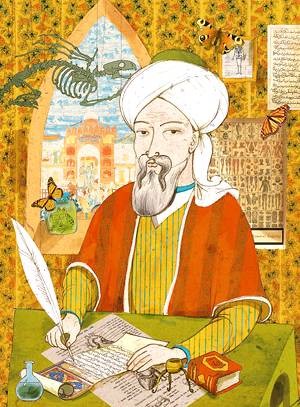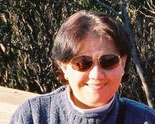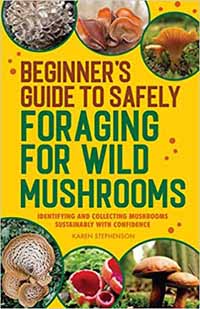

Written by Tel Asiado.
Early Life
Persian philosopher Ibn Sina or Avicenna (c.980-1037) was born in the village of Afshana near the present-day Bukhara (in Uzbekistan) then a leading city in Persia (Iran.) His mother Setareh was from the same village, while his father Abdullah was Ismaili, who was a respected local governor, under the Samanid dynasty was from the ancient city of Balkh (today Afghanistan). His real name is Abu Ali al-Husayn Ibn Abd Allan Ibn Sina, however, he is commonly referred to under his Latinized name Avicenna. In the Muslim world, he is known simply as Ibn Sina.

At an early age, his family moved to Bukhara where he studied Hanafi jurisprudence with Isma‘il Zahid and at about 13 years of age he studied medicine with a number of teachers. At the age of 16, he established himself as a respected physician. Besides studying medicine, he also dedicated much of his time to the study of physics, natural sciences and metaphysics.
His knowledge of medicine brought to the attention of Nuh ibn Mansur, the Sultan of Bukhara of the Samanid Court, whom he treated successfully. In 997, Avicenna was hired as a physician by Nun ibn Mansur, and he was permitted to use the sultan's library and its rare manuscripts allowing him to continue his research. This training and the library of the physicians at the Samanid court assisted him in his philosophical self-education. The sultan's royal library was considered one of the best kinds in the medieval world at the time.
Major Accomplishments
Avicenna was one of the most celebrated philosophers and physicians in the early Islamic empire. In the Latin West, his metaphysics and theory of the soul had a profound influence on scholastic arguments, and as in the Islamic East, it was the basis for considerable debate and argument. They regarded him as the principal representative of philosophy in Islam. Like other Islamic scholars, he studied the writings of the lands that were being absorbed into an expanding Islamic Empire. For example, the Canon of Medicine incorporates the work of Galen, as well as ancient Ayurvedic, Arabian and Persian texts. It also contains his own theories of medicine. The resulting synthesis sets out a medical system that was accepted as the standard for centuries. As such, his influence on the development of medicine across much of the world is significant.
His philosophy dealt with some of the most fundamental questions including the role of God in the human existence and the universe. He wrote on logic, metaphysics and ethics, but his greatest contribution to the development of both Muslim and Western thought was his attempt to reconcile the ancient Greek philosophy and God as the creator of all existence. Although his native language was Persian, most of his works were written in Arabic which was the language of the science in the Middle East in his time.
He wrote prolifically on a wide range of subjects. He is thought to have created over 400 works on various topics but only about half have made it though time. Forty of his medical texts have survived, including one of the most significant books in the history of medicine called "Canon of Medicine". It was printed in Europe at least 60 times between 1516 and 1574. The Canon remained a major authority for medical students in both the Islamic world and Europe until well into the 1700s.
Timeline
Due to the lack of credible sources it is impossible to ascertain how much of his biography is accurate.
- c. 980 - Abu Ali al-Husayn ibn Abdullah ibn Sina (or Ibn Sina for short) was born in Afshana, a village near Bukhara (present day Uzbekistan), capital of the Samanids, a Persian dynasty in Central Asia.
- Around 10 years old he had memorized the entire Qur'an.
- As a teenager he studied Aristotle's Metaphysics which had difficulty understanding. He also studied philosophy with even greater difficulty understanding. He also studied medicine with various teachers.
- At 16 he was established as a physician by his own account and discovered new methods of treatment.
- At 18 he achieved full status as a qualified physician, also from his own account, and quoted with: "Medicine is no hard and thorny science, like mathematics and metaphysics, so I soon made great progress; I began to treat patients, using approved remedies." The youthful physician's fame spread quickly.
- Around early 1000 his father passed away and political turmoil in 1002 was ripe so he was forced to leave Bukhara and went to Urganj (present-day Konye-Urgench) in today’s Uzbekistan.
- In 1012, out of necessity he moved to Gurgan (Jurjan or Gorgan) in Khurasan in search for a patron. He also started working on the Canon of Medicine which is his most famous work. He first met his disciple and scribe Juzjani.
- In 1013 he moved to Rai near the present-day Tehran to work as a physician.
- 1015 - He arrived in Hamadan where he settled down. He became vizier of Shams al-Dawla. After the latter's death in 1021, Avicenna once again sought a patron and became the vizier of the Kakuyid ‘Ala’ al-Dawla for whom he wrote an important Persian summa of philosophy, the Danishnama-yi ‘Ala’i (The Book of Knowledge for ‘Ala’ al-Dawla). In Hamadan, he established himself as a philosopher and physician, and wrote his greatest works. However, after the death of the emir of Hamadan, Avicenna wrote to the ruler of Isfahan and offered his service. When the new Hamadan emir found out about his letter, he had him imprisoned. He was eventually released but he decided to flee.
- 1025 - He arrived in Isfahan disguised as Sufi ascetics, along with his brother, a student and two slaves. They left Hamadan and arrived in Isfahan and were warmly welcomed by the city's ruler. He spent his last years in a relative peace, serving the city as the advisor of Isfahan's ruler and physician.
Death
He died from severe colic in 1037 at 58 years of age. Said to be an arrogant thinker, he was fond of his slave-girls and wine.
Resources
- "Abu Ali al-Husayn ibn Abdullah ibn Sina (Ibn Sina) (980-1037 CE)". Science Museum. Accessed April 14, 2014.
- Avicenna (Ibn Sina). Philosophers.co.uk. Accessed April 14, 2014.
- Ibn Sina (980-1037) Persian Scientist. www.hyperhistory.com. Accessed April 14, 2014.
- Ibn Sina: Abu 'Ali Al-Husayn (980-1037). Islamic Philosophy Online. Accessed April 14, 2013.

About the Author
Tel Asiado is a writer, author, content producer, and business consultant. She owns various niche websites. Her articles reflect her passions in writing & reading, biographies & histories, inventions & discoveries, to classical music, art & literature and small business. Tel has produced non-fictions, e-books and anthologies, and has written numerous articles on varied subjects online and in print. Her education is MBA, BScience in Chemistry, and Diploma in Small Business & Internet Mktg.
Winter Survival Food Handbook

PDF Plant Magazines
Types of Wild Food
Geographic Zones Seasons
Disclaimer
EdibleWildFood.com is informational in nature. While we strive to be 100% accurate, it is solely up to the reader to ensure proper plant identification. Some wild plants are poisonous or can have serious adverse health effects.
We are not health professionals, medical doctors, nor are we nutritionists. It is up to the reader to verify nutritional information and health benefits with qualified professionals for all edible plants listed in this web site. Please click here for more information.
Why Edible Wild Food?
- Food costs are rising
- Free, wild food is readily abundant
- Wild food adds nutrition to your diet
- Wild food can help treat various medical conditions





